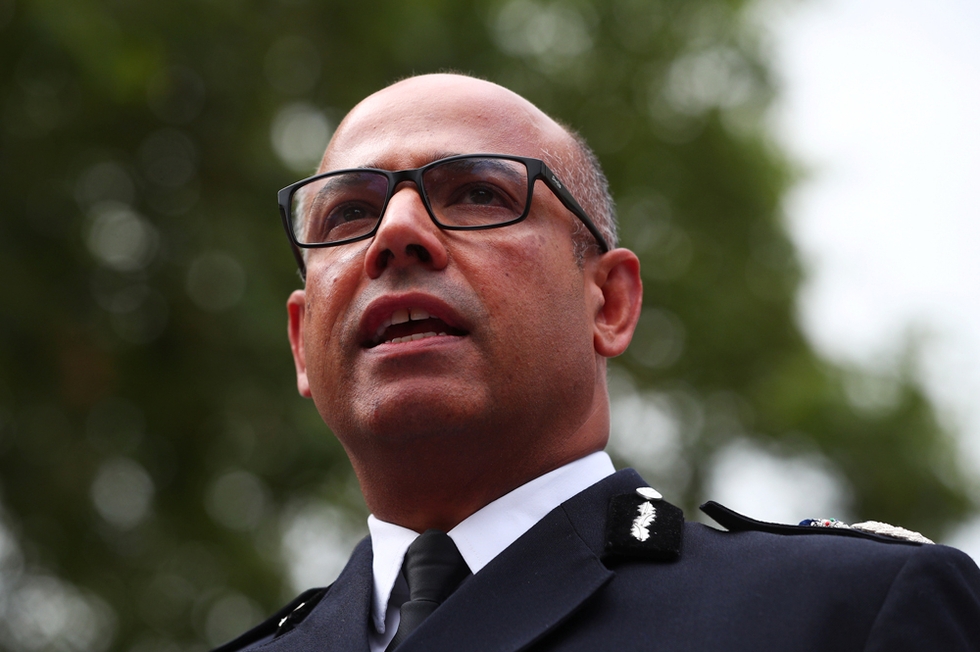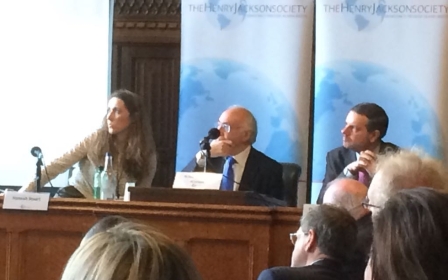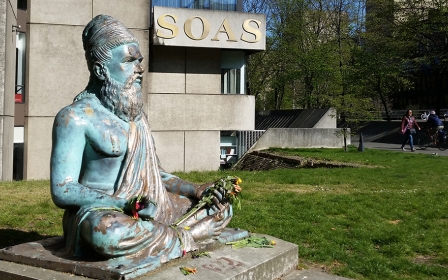Fighters returning from Syria no longer biggest threat to UK, says police chief

British police no longer consider fighters returning from Syria to be the biggest terrorism threat to the UK, the country's most senior counter-terrorism officer has told MPs.
In evidence given to parliament's home affairs committee on Wednesday, Metropolitan Police Assistant Commissioner Neil Basu said that police had thought for a long time that returnees constituted the biggest threat.
But, he said, the majority of recent attacks and disrupted plots had involved British nationals or British dual-nationals inspired by terrorist groups.
"Despite thinking for a long time our biggest threat was returning or directed foreign fighters, the majority of attackers here who have attacked or plotted are inspired UK or dual UK nationals," Basu said.
At least 900 British nationals of "national security concern" are estimated to have travelled to Syria to join the Islamic State (IS) group as fighters or in other roles.
About 20 percent of those have been killed while 40 percent have returned to the UK, according to the UK's latest counter-terrorism strategy.
Others, such as alleged members of a British IS execution cell dubbed the "Beatles" by their captors, are currently among thousands being held in Kurdish-controlled areas after being captured as the group lost most of its territory in Iraq and Syria.
Other British nationals have travelled to Syria since the country's civil war began in 2011 to undertake aid work in opposition-held areas or to fight with other armed groups.
Many of those have been subjected to government measures to prevent them from returning home, such as citizenship revocation orders.
Last year, Middle East Eye reported on the cases of British nationals involved in aid work in rebel-held areas of Syria who had been stripped of their citizenship because they were assessed to "present a risk to the national security of the United Kingdom".
The aid workers with whom MEE spoke are all seeking to have their citizenship restored through an appeals process.
The perceived threat posed by returnees from Syria has also been used to justify contentious proposed new laws in the government's counter-terrorism and border security bill, including the creation of a "designated area offence".
The designated area law would enable the home secretary to ban British nationals from travelling to or remaining in an area for the purpose of protecting the public from terrorism.
Human rights groups say it would effectively make travelling a crime and affect people visiting family, aid workers, journalists and academics.
Basu said in a Home Office fact sheet that the proposed law would have "real operation value" in the scenario of a future conflict that was attracting foreign fighters from the UK.
'Simple attacks on softer targets'
Basu said that police and prosecutors had been unable to build a case for prosecution against most returnees, but indicated that he did not consider the 40 percent who had returned home to pose a significant threat.
"My real concern is the people who are battle-hardened terrorists who have been fighting, who are fighting and who are committed to that fight. Should they seek to come back or should they start to come back they of huge concern. That is the big national security threat," he said.
But Basu said the greatest concern came from "simple attacks on softer targets that are cheap to mount, easy to disguise and harder to see and stop".
"The weapons used by the attackers can now range from home-made explosives to a family car or an everyday kitchen knife," he said.
The UK suffered a wave of IS-inspired attacks in 2017, including two vehicle-ramming and stabbing attacks in London in which 13 people and four attackers died, and a bombing in Manchester that killed the bomber and 22 people.
Basu said the greatest threat remained from those inspired by IS and al-Qaeda and that police and intelligence services had thwarted 17 plots since the Westminster Bridge attack in March last year.
The police and MI5 were currently working on 700 investigations, with about 80 percent focused on "Islamist-jihadist threats," he said.
Raffaello Pantucci, director of International Security Studies at the Royal United Services Institute (RUSI) think tank, told MEE in an email that Basu's remarks reflected the fact that police and intelligence agencies had adjusted their thinking because an expected "reverse flow" from Syria had largely failed to materialise.
The 2017 attacks had also highlighted the threat posed by "isolated individuals" without strong connections to known networks, he added.
"Almost all attacks have been [carried out by] UK nationals. They are isolated individuals for the most part, and the questions around them having links to known networks are much farther away these days than they used to be," Pantucci said.
A spokesperson for the Metropolitan Police told MEE: "AC Basu was updating the committee on the current threat picture, which is continually being assessed based on the latest intelligence so that police and the security services are able to respond to it."
New MEE newsletter: Jerusalem Dispatch
Sign up to get the latest insights and analysis on Israel-Palestine, alongside Turkey Unpacked and other MEE newsletters
Middle East Eye delivers independent and unrivalled coverage and analysis of the Middle East, North Africa and beyond. To learn more about republishing this content and the associated fees, please fill out this form. More about MEE can be found here.




